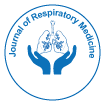Nursing Workers in the Intensive Care Unit in Greece
Received: 01-Nov-2017 / Accepted Date: 04-Nov-2017 / Published Date: 13-Nov-2017
Editorial
The effectiveness of an intensive care unit depends on many factors and requires appropriate settings, modern technological support, adequate and well-trained medical and nursing staff. The significance of the human factor is demonstrated by the fact that the staging of the level of care proposed by the European Society of Intensive Care Medicine uses as a single criterion the patient: nurse ratios in critical care [1].
Adequate qualitative and quantitative nursing staff is the basic prerequisite for the successful operation of ICUs, regardless of the level of technology used. Nurses are the key to the success of care provided to critically ill patients, as they are on a 24-hour basis close to them.
Inadequate nursing coverage is proven to be associated with serious negative consequences that may be related to the patients’ hospitalization, monitoring or general safety (i.e., weaning process). Precisely, bibliography reveals that high level of nursing workload leads to poor outcome and increased mortality rate in critically ill patients [2]. In a recent study, when a nurse was responsible for more than two beds, there was a significant extension of the ICU stay. When a nurse was responsible for three instead of two beds, the risk of complications of the respiratory system as well as the possibility of re-intubation are highly increased [3]. However, providing sufficient nursing staff is a major problem that has intensified in recent years due to the high demand for ICU beds and lack of qualified medical personnel. Such conditions lead both to sub-operation and reduced use of existing beds. On the contrary, concerning medical staff, the shift towards qualified critical care practitioners and the closed unit model has proved to bring about an improved outcome [3].
In Greece, during the last two decades, the existence of multifunctional intensive care units operating based on the closed unit model of organization, endowed with specially trained physicians, was a real qualitative advancement in the health sector [4]. However, even though throughout the last twenty years the nursing coverage of Greek ICUs has recorded a steady progress in terms of nurses/beds ratio and nursing education level [5,6], especially after the economic crisis’ outburst the needs of nursing staff remain high, both in numerical and training terms [4,7,8]. More so, problems related to ICU nursing staff are certainly not limited to the number and/or qualifications of nurses. Another dimension which needs to be considered is the evaluation of nursing workload (i.e., with the Therapeutic Intervention Scoring System-TISS) as well as the degree of health and occupational safety. In this respect, the results of worldwide studies on ICUs are impressive. It was noted that the occurrence of occupational health and safety problems in ICU workers not only leads to decreased job satisfaction and productivity but also increases absenteeism and burnout. Moreover, this situation adversely affects patients care and increases the cost of treatment [9].
Similar data for the case of Greece are of great interest, as preliminary results are roughly the same and lead to the conclusion that, besides the numerical growth of staff and the acquisition of formal qualifications, the level of professional autonomy and job satisfaction should also be borne in mind for an effective and qualitative nursing work [10,11]. The implementation of this objective requires the upgrading of the educational program of the nursing schools and the institutionalization of critical care nursing as a distinct nursing specialization, as well as a more rational and flexible organization of nursing work. More so, it is a fact that ICU nurses face harsh working conditions that require a continuous, active and responsible presence and which also involve physical and mental stress. Thus, in order to achieve a high level of nursing and to ensure professional autonomy and job satisfaction, continuous training of ICU nurses as well as role enhancement and support are required for nurses working in critical care. In this sense, certain “privileges” (i.e., rest areas, offices with elementary comfort, participation in research protocols, licenses) should be ensured. It is also necessary to clarify the ambiguity that exists in the definition of their tasks. Therefore, it is imperative to establish tasks based on the requirements of a modern intensive care unit.
Finally, one must admit that more research is needed concerning organization, staffing, cost and quality control in the ICU area because these are prerequisites for rational planning and decision making in this sensitive area [12,13].
References
- Myrianthefs P, Boutzouka E, Fildisis G, Baltopoulos G, Tsimogianni A, et al. (2001) Multidiscipllinary care teams in the Intensive Care Units: Present situation. Pneumon, pp: 14: 38-46.
- Baltopoulos G, Chrysanthou V, Moraitidis D (1991) Intensive care medicine in Greece. Intens Care World 8: 140-2.
Citation: Grigorakos L (2017) Nursing Workers in the Intensive Care Unit in Greece. J Respir Med 1: e102.
Copyright: © 2017 Grigorakos L. This is an open-access article distributed under the terms of the Creative Commons Attribution License, which permits unrestricted use, distribution and reproduction in any medium, provided the original author and source are credited.
Share This Article
Recommended Journals
天美传媒 Access Journals
Article Usage
- Total views: 3850
- [From(publication date): 0-2017 - Jan 11, 2025]
- Breakdown by view type
- HTML page views: 3134
- PDF downloads: 716
